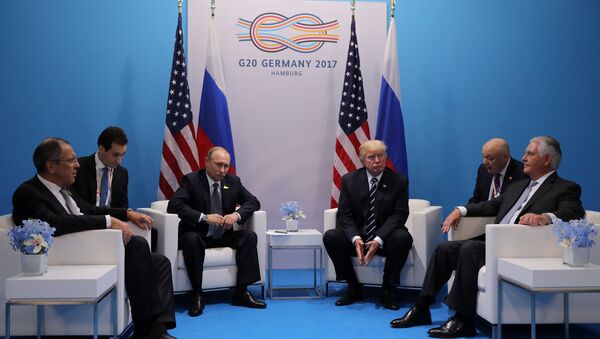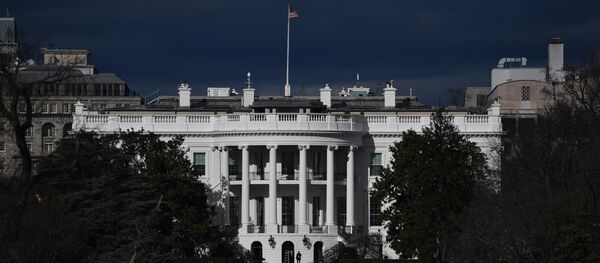During the talks, which lasted more than two hours, the two leaders managed to agree on an array of pressing issues related to Syria, Ukraine and cybersecurity.
In an interview with Reuters earlier this week, Trump admitted that he "was very tough with President Putin" and that "we have a very important relationship."
"It's going to be a relationship where lots of lives could be saved, like as an example with the cease-fire, which nobody else could have gotten but me," Trump said.
Poll shows 27 percent of Russians like #Trump, up from 13 percent in April, after his first meeting with #Putin https://t.co/b8bB6UVjnc pic.twitter.com/PjwLdNIT6a
— China Xinhua News (@XHNews) 13 июля 2017 г.
He added he would also like to ask the Russian leader whether he supported him during Trump's election campaign last year.
"It's really the one question I wish I would have asked Putin: Were you actually supporting me?" Trump said.
At the same time, he pointed out that he had taken a number of steps during his presidency which he said could irritate Moscow.
Putin and Trump really have chemistry?pic.twitter.com/o4HpaY4yuu
— Eddie Du (@Edourdoo) 8 июля 2017 г.
"Look what I've done – oil prices have been driven down. We’re sending [liquefied natural gas] to Poland, massive shipments to Poland. That's not what Putin wants. And for the military, we've got $56 billion more [earmarked for] equipment than anybody ever thought of, in the last budget. Putin doesn't want that – so why would Putin want me?" Trump asked rhetorically.
According to Professor Alexander Domrin of the Higher School of Economics, all these remarks by Trump were addressed to the internal audience of the United States.
"It was very interesting to watch the meeting of the two leaders in Hamburg, but I, and probably everyone, didn't have the least impression that Trump's behavior was tough during those talks, which saw a moment of 'chemistry' between the leaders of the two countries," Domrin said.
"And when Trump is now saying he was very tough with Putin, these words are not addressed to an external audience, let alone the Russian President. These remarks by Trump are addressed to the United States, its voters and US Congress. Russia still remains a factor in the US domestic policy and Trump's words should be perceived exactly in this context," Domrin concluded.
Meanwhile, Trump said that he would invite Russian President Vladimir Putin to the White House at "the right time," according to a transcript released by the White House on Thursday.
Earlier, US Secretary of State Rex Tillerson said that the G20 meeting between Putin and Trump revealed "a very clear, positive chemistry" and connection between the two leaders, while Russian Foreign Minister Sergey Lavrov described the two's meeting as constructive.




